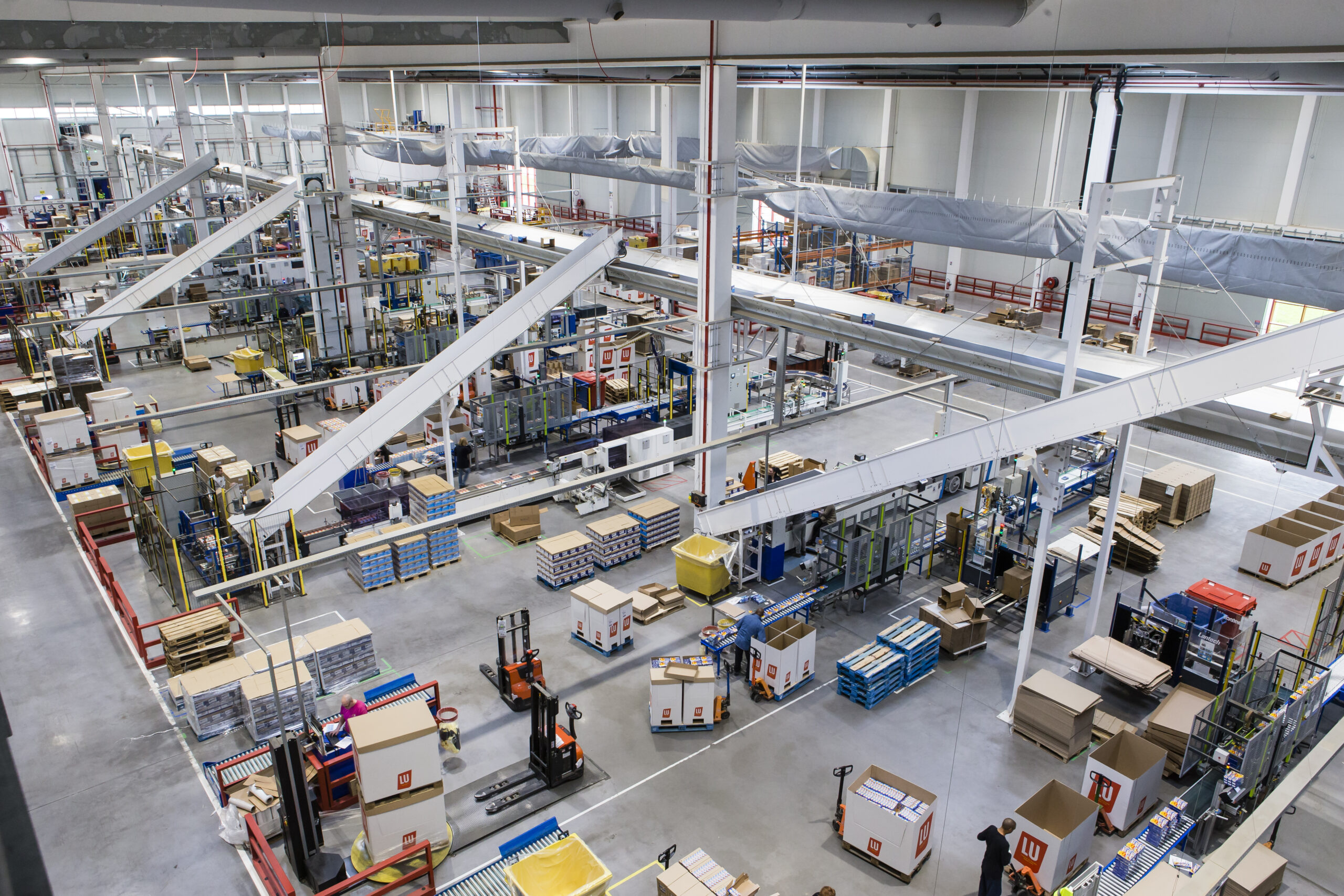What you need to know about co-packing
What can you expect from logistic operators as part of co-packing offer? How to improve the supply chain by outsourcing these services?
On January 24, 2023

What can you expect from logistic operators as part of co-packing offer? How to improve the supply chain by outsourcing these services?
On January 24, 2023
Co-packing is one of the most important added services to the basic logistic service. For the past few years, it has been a fundamental part of 5PL-level logistics operators offer. Comprehensive packaging and co-manufacturing processes ensure a better product match with individual needs of the customers, i.e. trade chains and consumers.
The phrase “co-packing” applies to a number of operations diverse in terms of scope and level of product interference. Packaging services as such involve the handling of sealed product, i.e. the unit or collective packaging, without interfering with the product itself. They allow finished products to be adapted to individual end-user requirements by combining individual items into multipacks, mixes and/or promotional sets. Co-packing includes labelling, film-wrapping and stands preparation. Chiefly comprising short product lines, this segment of logistics operations frequently features considerable process variability. It is also an extraordinarily comprehensive service, starting from packaging design through procurement, supply chain management, customs clearance, and direct distribution. Full coordination of all operations allows the manufacturing of non-standard packaging, with direct Brand Relationship impact.
Co-packing further includes co-manufacturing involving direct product interference, often as not including and extending to changes to the product’s functional and physical properties. In all actuality, co-manufacturing is the final stage of the manufacturing process stage, extramural, occurring outside the production site. Such operations as primary packaging, programming, or bottling (canning) require enormous investment outlays, the use of state-of-the-art technologies, and specialist knowledge. Consequently, co-manufacturing projects are usually based on long-term contracts – as opposed to packaging services provided against multiple single procurement orders.
For manufacturers to provide complex in-house packaging and co-manufacturing services, they would have to spend money on additional investments, adapt their intra-logistics models, potentially modify production lines, expand team skills, manage considerably larger seasonal staff numbers, develop their technology, and maintain extra space – or generate manufacturing process bottlenecks and potentially build local inventory. Accordingly, manufacturers are ever more frequently choosing to commission related services from specialist companies with vast spatial and technological support structures. Handling co-packing in space shared with other logistics services – i.e. the operator’s warehouse – makes organisational tasks easier, allowing for considerable cost optimisation and more efficient order processing. Consequently, co-packing affords maximisation of supply chain effectiveness and improved product matching with contemporary consumer requirements.
By outsourcing logistics operations, manufacturers gain competent partners with the capacity to offer support from the early packaging production stage. Such partners can also take over responsibilities involving the management of manufacturing and relations between the production plant, packaging manufacturer and co-packer, relieving the client of all related duties. Such collaboration requires intense factory-warehouse integration. We at FM Logistic have advanced and flexible IT tools capable of integrating the systems of all three parties to the process: VMI (Vendor Managed Inventory) allows efficient client inventory management while providing assorted optimisation options in terms of financials and raw material supply planning alike.“We are currently handling co-packing operations at seven in-house facilities in Central Europe – in Poland, the Czech Republic and Slovakia – with two further venues in the pipeline. Our clients include 40 major manufactures across the region, representing the FMCG, health & beauty and industry segments,” said Arkadiusz Buczek, Co-packing Processes Director Central Europe, FM Logistic. “In view of the evolving market and continually improving consumer awareness, our co-packing services have undergone major transformation. Today, a professional co-packer is expected to follow rapidly changing trends, create, and advise and make solution-related suggestions to clients in order to make their product more attractive. Owing to our extensive industry knowledge, multiannual experience and proper tools, we are capable of meeting challenges our clients are facing on today’s market,” he added.
How can we help you ?
Fill in the form